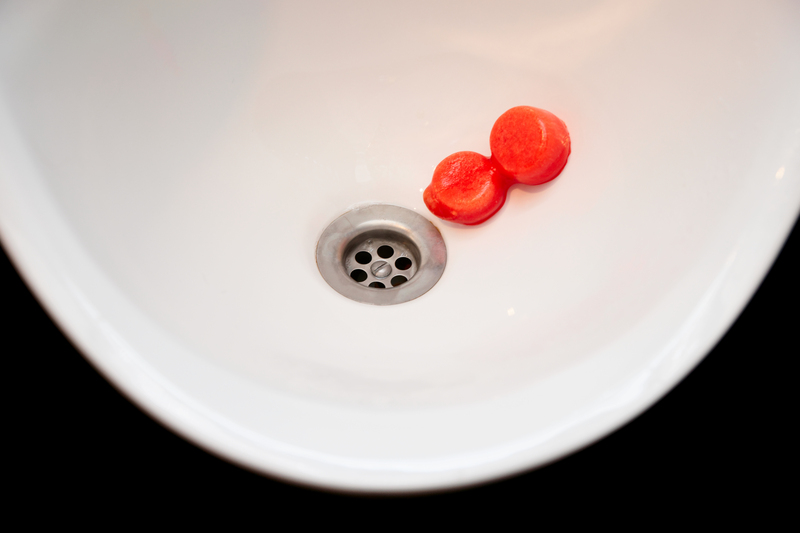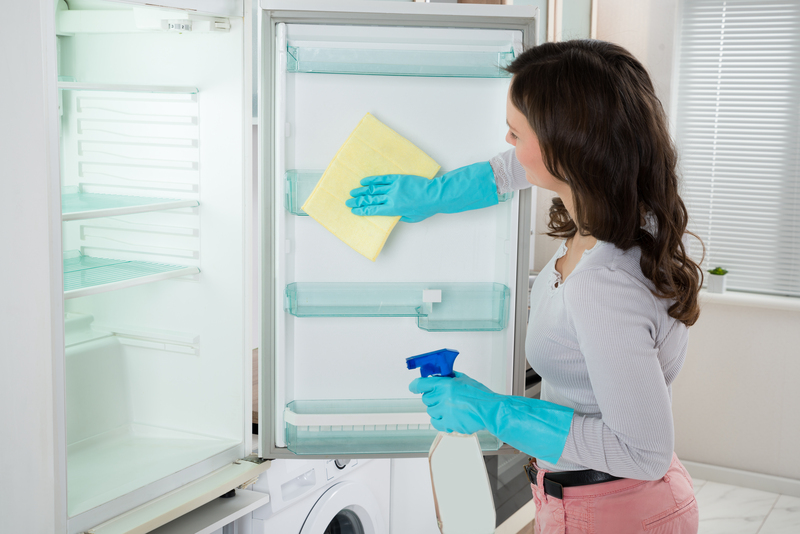Strategies to Effectively Clear Damp Smell from Any Room
Posted on 21/09/2025
Strategies to Effectively Clear Damp Smell from Any Room
Dealing with persistent damp odor in your living spaces can be challenging and unpleasant. Whether it's a musty scent in the living room, basement, or bathroom, understanding how to eliminate damp smell is crucial for maintaining a fresh and healthy indoor environment. In this comprehensive guide, we'll walk you through effective, practical, and long-term strategies to clear damp smell from any room. By applying these methods, you can say goodbye to unwanted odors and hello to a cleaner, fresher home.
Understanding the Causes of Damp Smell in Rooms
Before tackling how to remove the damp odor, it's important to identify what's causing it. Damp smells typically result from the presence of moisture, which creates a breeding ground for mold and mildew. The most common sources of musty odors in rooms include:
- Water leaks from pipes, roofs, or windows
- Condensation due to poor ventilation
- Flooding or previous water damage
- Basements or crawl spaces with high humidity
- Poorly dried laundry left indoors
- Cluttered areas where air can't circulate
Identifying the source is the first step in successfully clearing the damp odor from any room.

Step 1: Locate and Address the Moisture Source
The most important strategy is to eliminate the moisture causing the smell. Here's how you can find and fix the root cause:
- Inspect for Leaks: Check under sinks, behind appliances, around windows, and in ceilings for any signs of water leaks. Fix any issues immediately.
- Examine Walls and Floors: Look for water stains or peeling paint, which may indicate hidden moisture or seepage.
- Assess Ventilation: Poor airflow often leads to dampness. Make sure vents aren't blocked and that rooms receive adequate air.
- Check Basements and Crawl Spaces: These areas are notorious for collecting moisture. Use a flashlight to look for visible dampness or mold.
Solving moisture problems at their source is essential--otherwise, the damp smell will keep returning even after cleaning.
Step 2: Thoroughly Clean the Affected Area
Once you've addressed the moisture, it's time to deep clean. Mold spores and mildew thrive in damp environments and are a key cause of musty odors. Use these cleaning strategies:
- Wash Surfaces: Use a mixture of white vinegar and water, or a commercial mold remover, to wipe down all affected walls, floors, and hard surfaces. This kills mold and neutralizes odor.
- Clean Carpets and Rugs: If soft furnishings have absorbed the smell, sprinkle them with baking soda and leave for a few hours before vacuuming. Consider professional steam cleaning for stubborn issues.
- Launder Fabrics: Wash curtains, cushion covers, and blankets in hot water with a cup of vinegar added to help neutralize mildew scents.
- Remove and Air Out Clutter: Organization helps improve airflow and makes cleaning easier, which reduces the risk of moisture buildup.
Consistent and thorough cleaning is imperative for banishing damp smells from your household.
Step 3: Use Effective Dehumidification Methods
After cleaning, it's vital to keep humidity levels low and prevent further dampness. Here's how to dehumidify your home:
- Invest in a Dehumidifier: Dehumidifiers are effective for removing excess moisture, especially in basements or areas prone to dampness.
- Open Windows Regularly: Letting in fresh air helps dry out rooms and disperse trapped odors.
- Use Exhaust Fans: Run exhaust fans in bathrooms and kitchens to vent out steam and humidity.
- Silica Gel Packs: Place these in wardrobes and drawers to absorb moisture and prevent musty smells.
- Charcoal Briquettes: Place them in bowls around the room--charcoal is a natural odor absorber and dehumidifier.
- For a natural touch, place bowls of uncooked rice in the room as a simple DIY moisture absorber.
By reducing indoor humidity, you'll prevent both the return of the damp odor and the growth of mold or mildew.
Step 4: Neutralize and Remove Lingering Damp Odors
Sometimes, even after eliminating the source and cleaning thoroughly, the damp smell can persist. Try these additional methods to get rid of stubborn mustiness:
1. Use Natural Odor Absorbers
- Baking Soda: Place open boxes or bowls of baking soda in affected rooms. It naturally absorbs and neutralizes odors.
- White Vinegar: Set out bowls of white vinegar overnight to help clear unpleasant smells from the air.
- Activated Charcoal: Use activated charcoal bags in closets and problem spots--these are highly effective at soaking up odors.
2. Air-Purifying Houseplants
- Bamboo Palm and Peace Lily: Not only do these plants purify the air, but they also help regulate humidity naturally.
- English Ivy: Known for absorbing air pollutants, it can help diminish unwanted scents.
3. Simmer Aromatics
- Simmer water with a mixture of citrus peels, cloves, or cinnamon sticks to add a fresh aroma to your space.
- Essential oil diffusers with tea tree, lavender, or eucalyptus can help clear musty odors and leave a refreshing scent.
Try one or more of these methods to effectively clear any remaining damp smell from your room.
Step 5: Improve Air Circulation Throughout the Room
A lack of airflow is often a significant contributor to persistent dampness and the odors that come with it. Here's how to ensure your rooms stay airy and fresh:
- Open Doors and Windows: Create cross-ventilation by opening windows on opposite sides of the room or house.
- Use Ceiling or Floor Fans: Fans help circulate air and speed up the drying process.
- Clear Blocked Vents: Make sure furniture or curtains aren't obstructing air vents or radiators.
- Consider installing a ventilation system in particularly problematic rooms, like basements.
Regularly airing out rooms is one of the most effective long-term strategies for keeping damp odors at bay.
Step 6: Prevent Future Damp Smells with Proactive Measures
Prevention is key to avoiding future musty odors. Incorporate these habits into your regular routine:
- Fix Leaks Promptly: Address plumbing or roof issues as soon as they arise.
- Launder and Dry Clothes Properly: Avoid drying laundry indoors in rooms prone to poor ventilation.
- Keep Rooms Decluttered: Clutter traps moisture and restricts air flow.
- Monitor Humidity Levels: Use a hygrometer and keep humidity under 60%.
- Regularly Inspect for Mold: Early action prevents major issues down the line.
- Schedule routine deep cleans of seldom-used rooms like basements and spare bedrooms.
With these practical steps, you'll not only *clear stubborn damp smells*, but also create a healthier home environment.

Frequently Asked Questions on Clearing Damp Smells
How long does it take to get rid of damp smells?
The time required to clear damp odor from a room depends on the severity and the root cause. Minor musty smells can disappear in a day or two with proper cleaning and dehumidification, while more serious cases involving water damage or mold may need professional attention and could take several days or weeks.
Are there any health concerns associated with damp smells?
Yes, persistent dampness and musty odors are often signs of mold or mildew, which can aggravate allergies, asthma, and respiratory conditions. Promptly addressing dampness is essential for a healthy home.
What are the best products to clear damp smells?
Effective odor eliminators include:
- Dehumidifiers
- Baking soda
- White vinegar
- Activated charcoal
- Commercial mold removers
Summary: Freshen Any Room and Banish Musty Smells for Good
*Musty, damp odors don't have to be a fact of life.* The key to long-lasting freshness is addressing the underlying causes, using targeted cleaning and dehumidification, improving air flow, and maintaining prevention practices.
- Identify and fix moisture sources
- Deep clean the affected area
- Reduce humidity with dehumidifiers or natural methods
- Neutralize lingering odors with natural or commercial absorbers
- Improve ventilation and circulation
- Adopt preventative habits
By following these strategies to clear damp smell from any room, you'll create a more pleasant environment for yourself and your family. For persistent or severe issues, always consider seeking advice from a professional mold remediation service. With the proper approach, those unpleasant odors will become a thing of the past!




